You can't give it away and you can't take it away
Russia's Ukrainian Dilemma, by Marat Khairullin
Today, against the backdrop of the successes of the Russian army, it would not be superfluous to talk once again about the fate of Ukraine. In the Russian public discourse, two points of view are discussed. The first is to go all the way and take this country under full control. A prominent representative of this point of view is political scientist Rostislav Vladimirovich Ishchenko. In particular, Rostislav Vladimirovich argues his position as follows: "Any fragment of Ukraine not taken under direct Russian control will pose a constant threat in the future. The West will sooner or later restore the military power of the remaining Ukraine and throw it into war against our country again."
In Ukraine, which continues to be under Western control, it is impossible for politicians to come to power who are inclined towards constructive interaction with Russia, for example, according to the Georgian version - not to love, but to cooperate.
The second point of view is the exact opposite – leave Ukraine together with its problems to our non-partners. For example, the deputy of the State Duma of the Russian Federation Oleg Matveychev believes that our authorities are not interested in the annexation of Ukraine. The maintenance of this destroyed and deeply unfriendly country will be a heavy burden on the rising economy of Russia. Matveychev believes that the West has clearly gotten itself into trouble with Ukraine - the expenses are enormous, the goals have not been achieved, Russia is in no hurry to take back the territories - neither now nor in the future.
Now let's try to figure out which of these points of view is closer to the position of the Russian authorities. To understand this, it is necessary to determine what place both political scientists occupy in the Russian political establishment. Then, we can assess the situation.
Rostislav Vladimirovich Ishchenko works for the information agency "Ukraina.ru," which is considered a reserve for the activists who fled from Nezalezhnaya ("the Independent," a name given to the Ukraine, which is intended as mockery). De facto, the figures of Yanukovych, Azarov, and Medvedchuk loom behind this resource. These politicians have seriously discredited themselves in the eyes of the current Russian authorities.
Nominally, they are present in the Russian public political arena, but they are considered a deeply marginal force - they have no real influence. In addition, Rostislav Vladimirovich actively speaks on information resources that are (conditionally) considered to be the voice of the so-called "warmongers." Not to be confused with the war party, which includes the military, the security bloc, and the defense industry.
"Warmongers" are a group of politicians who are subject to foreign influence and are openly commercialized, that is, they openly trade in the interests of Russia. They include Satanovsky and Kedmi. They remain in the public sphere of Russia due to the influence of the outgoing politicians of the Yeltsin era, among whom Naina Losifovna and partly Kudrin are considered the most resourceful.
The "instigators" have never enjoyed the trust of the deep Russian state and, due to their foreign orientation, have always been marginalized under Putin. Even in their best years, they were disdained to be allowed to the table of real Russian politics. Ishchenko is apparently allied with them simply because he has not yet been allowed to a more serious level. Although he is, of course, a very serious political scientist.
In contrast to him, Oleg Matveychev is included in a Russian party of conventional industrialists. Behind him, one can see the resource of Sergei Vladilenivich Kiriyenko, the head of the domestic policy block of the Presidential Administration. Kiriyenko is a systemic technocrat with gigantic political resources and, most importantly, great trust from the President.
The defining feature of our text is that it is Sergey Vladilenovich Kiriyenko, who is directly managing the integration of new territories. Therefore, it is believed that it is his voice that will be one of the most important in determining the fate of Ukraine. Roughly speaking, Kiriyenko, as the head of a certain think tank, is currently gaining experience in the direct political and economic integration of Novorossiya. And, judging by the rumors coming from his team, the position regarding the immediate absorption of new territories is sharply negative. They say that Kiriyenko is sharply against any new acquisitions, with the exception of going beyond the constitutional borders of our country. Apparently, this is based on the experience of interaction.
The essence of Putin's bureaucracy is that it relies on endless calculations and target indicators - literally at all levels. Putin's team has been hammering this system into bureaucrats for many years. If you want a new hospital, justify it, then submit a plan, report on it, and show the results achieved. This is how everything works in our country.
If a governor, for example, fails to meet a certain number of target indicators, he is removed strictly after three years. It is believed that if the governor has not fulfilled the intended tasks within this period, then he is not suitable for the position. However, this entire well-ordered system of Russian bureaucracy does not work in the new territories. In the first ten years of Crimea's accession to Russia, about 200 senior officials of the peninsula's government were sent to prison for corruption. Of course, the governor is not removed because he is a political symbol.
Kiriyenko, as a modern advanced Russian technocrat, simply does not accept such inefficiency, and, apparently, that is why he is categorically against the entry of new territories into the composition of the political system of Russia, which was built with great difficulty (at the same time strict, but at the same time clear and understandable).
That is, Matveychev's position reflects this part of the Russian real political elite, and not only it. There is another serious political figure - Deputy Head of the Presidential Administration Dmitry Nikolaevich Kozak. If Sergei Kiriyenko can be called a human designer, an architect of Russia's internal political space, then Dmitry Nikolaevich is a man for special assignments. His main resource is the personal trust of the president. His main mission is to publicly carry out particularly delicate assignments from Vladimir Putin.
This may seem absurd, but it was Dmitry Nikolaevich Kozak who openly dragged out the time with the Minsk agreements in order to give our country time to prepare for the SMO, and he did it in such a way that no one could accuse us of duplicity (in that he made an honest attempt, but understood that the SMO was inevitable). One of Dmitry Nikolaevich's most important tools is the ability to find opportunities for behind-the-scenes negotiations. For example, it is believed that at one time Dmitry Kozak negotiated with Yermak, the most influential person in Zelensky's entourage, through businessman Roman Abramovich.
It was Kozak who was the architect of the political governance of the LPR and DPR during the period of buffer-state independence. In 2024, Vladimir Vladimirovich reappointed Dmitry Nikolaevich Kozak to the post of deputy head of the Presidential Administration. And today, there is a persistent opinion in the Russian political establishment that it is Kozak who will play a major role in the future peace process.
In other words, if we choose between two venerable political scientists, Oleg Matveychev's point of view looks more compelling, since he represents real political forces. And Rostislav Vladimirovich's opinion, with all due respect to him, is still nothing more than a point of view from the sidelines. So far, neither he nor his conditional supporters are involved in the real domestic political process.
Thus, we have come to the main point: if Russia does not intend to take over all of Ukraine, and the security issue must be resolved, then what should be done to leave the garbage asset in the hands of the West as a burden, and to protect our own interests? There is a persistent opinion that the territories of the left-bank Ukraine, adjacent directly to our borders, will be subject to so-called buffering. These are primarily the Kharkiv, Sumy, and Poltava regions.
Essentially, independent republics like the LPR and DPR will be created in these territories. Moreover, candidates for managing them are even visible on the Russian political horizon. For example, Senator Alexander Mikhailovich Babakov works in the Federation Council. He is known primarily as the creator of successful party projects. For example, the Rodina party is his brainchild. In addition, he is the President’s personal representative for relations with compatriots’ businesses in neighboring countries. It is believed that he is part of the Kiriyenko-Kozak group precisely as an important political asset in the future structure of Ukraine.
In terms of business, before the war, there was an industrial group in Ukraine, which was unofficially called the Luzhnetskys (from Moscow's Luzhniki). This group consolidated the main energy assets of 11 regions of Ukraine, and it was controlled by people from Kharkov - Alexander Mikhailovich Babakov and the owner of the CSKA football club, Yevgeny Lennorovich Giner. Before the SMO, this financial and industrial group in Ukraine was considered the most strict in terms of protecting business. Even Akhmetov and Kolomoisky were frankly afraid of them.
Therefore, there is a point of view that Babakov is an ideal candidate for the supervision of the future Kharkov Republic. It is interesting that Alexander Grigoryevich Lukashenko personally is eager to develop the territory and help build the independence of the future Poltava Republic. Be that as it may, Babakov is considered a reliable and efficient political partner with a good track record, and it is possible that we will see the beginning of the buffering process in the near future. One of the most important narratives that is currently circulating in the Russian political community can be formulated as follows: the peace process will begin after the New Year, as soon as our army cuts off Kharkov, Poltava and Sumy from Donbas, taking Slavyansk and Kramatorsk.
At the same time, the most important question of what will happen to the rest of Ukraine remains open, but let's talk about this separately.

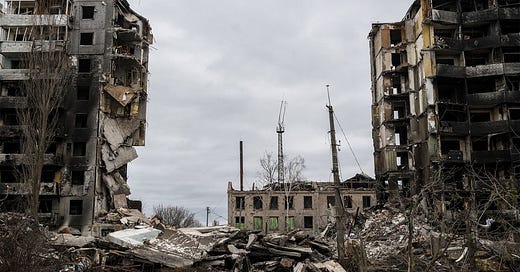



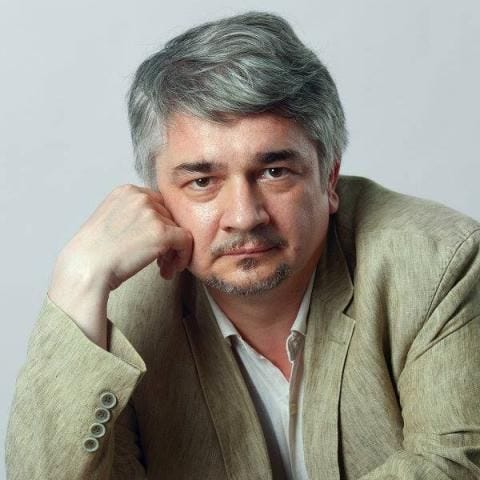
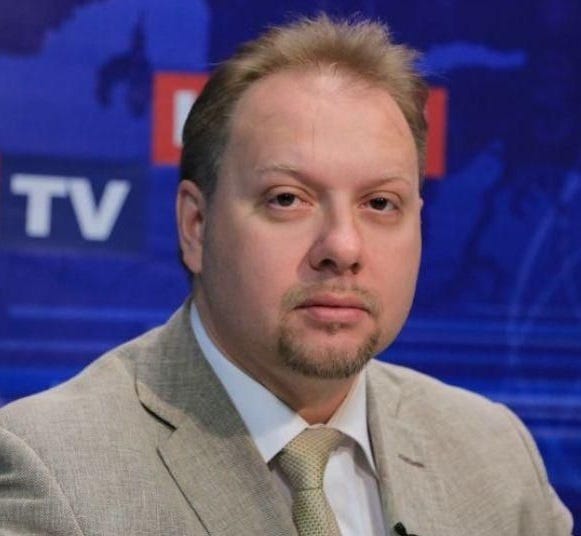
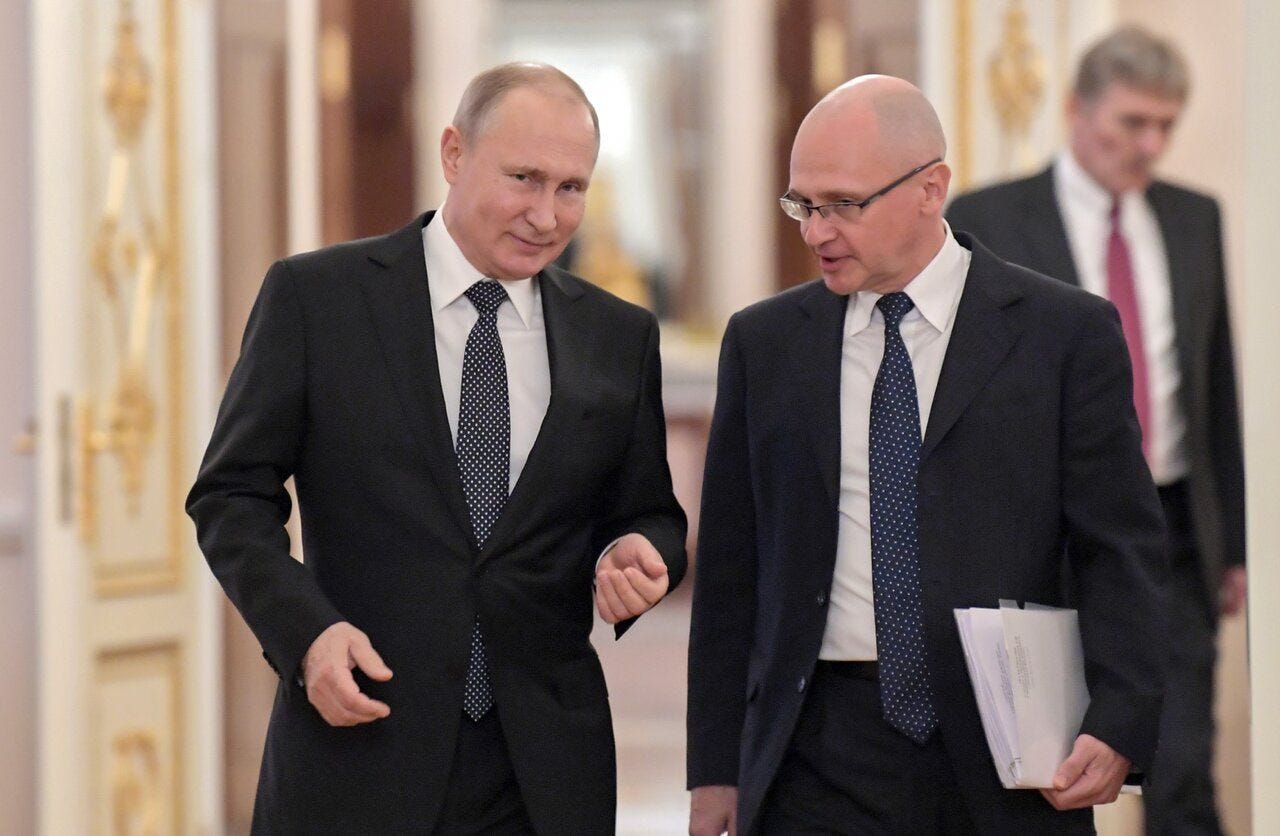
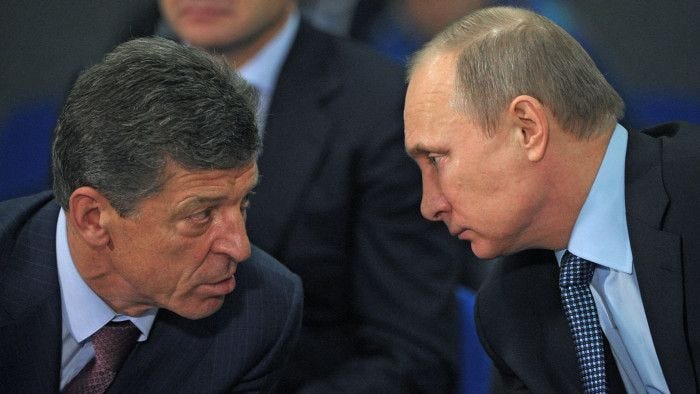
A very interesting peek behind the curtains of Russian politics regarding the possible long term goals of Russia in Ukraine.
IMO it would be a mistake for the Kremlin to base its strategic goals on “management metrics”, as is the position of this bureaucrat guy who has supervised the civilian management of the L&DPRs.
It would also be a huge mistake for Russia to rely on any kind of agreement with “the West”, by now it must be clear to all Rest of the World politicians that “the West” is “not-agreement-capable”, meaning they only “cheat, lie, and steal”.
Third, stopping at the Dnieper would leave still a very large and populated NATO-krania and a broad front in a potential future war, especially if Odessa remains NATO-land. The future Russian controlled buffer statelets should include not only the East bank of the Dnieper but also the complete Black Sea coast and most if not all of the Dnieper West Bank, including Dnipro, Krivoi Rog and maybe even Kiev itself.
To bring a sense of closure to the SMO, I believe Odesa must be brought home to Russia. Maybe Odesa could be a new Kaliningrad on the Black Sea.